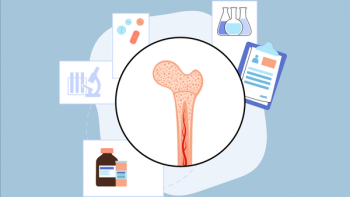
Special protocols are required to ensure the safety of patients undergoing bone marrow transplants.

Special protocols are required to ensure the safety of patients undergoing bone marrow transplants.

Findings from a phase 1 trial evaluating CAR T-cell therapy in patients with solid tumors showed promising clinical benefit with the treatment strategy.

Oncology nurses must assess the total pain of their patients by considering the physical, psychological, social, emotional, and spiritual elements.

Patients with YAP1 and inflamed T-cell expressing extensive-stage small cell lung cancer experienced superior overall survival following treatment with durvalumab and etoposide.

Evolving technology and adaptability allow for a more patient-centric approach to clinical trials; however, there are some limitations.

Patients with heavily pretreated lymphoma experienced promising clinical responses following treatment with the innate cell engager AMF13 plus preactivated and expanded natural killers (NK) cells.

Inclusion has to be an intentional part of the plan as strategies to diversify the nursing field are adopted.

Courtney Arn, APRN-CNP, a nurse practitioner comments on the recent approval of pembrolizumab for patients with MSI-H/dMMR advanced endometrial carcinoma.

An update from the phase 3 SKYSCRAPER-02 trial found that tiragolumab to atezolizumab did not significantly improve progression-free survival in extensive-stage small cell lung cancer.

The PARP inhibitor rucaparib significantly prolonged progression-free survival compared with placebo as a first-line maintenance treatment in previously treated patients with ovarian cancer.

Courtney Arn, APRN-CNP, a nurse practitioner who supported cohorts D and K of the KEYNOTE-158 study, discusses the recent approval of pembrolizumab for patients with MSI-H/dMMR advanced endometrial carcinoma.

ASCO has submitted a response letter to the Office of the National Coordinator for Health Information Technology regarding the efficacy of electronic prior authorization.

Undocumented patients with cancer face additional barriers to care.

Sheila Ridner, PhD, RN, FAAN, discusses the implications of the PREVENT study and how oncology nurses can advocate for patients with breast cancer.

A new method of developing CAR T-cell products produced infusion-ready cells in under 24 hours.

Patients with metastatic RET fusion–positive non–small cell lung cancer experienced encouraging responses with selpercatinib.

New data demonstrate that regular exercise can help patients with breast cancer mitigate the physical and mental treatment–related side effects that might impact their quality of life.

Strategic tips for achieving a Nurse Practitioner certification and advancing your nursing career.

Axicabtagene ciloleucel is now FDA-approved for the treatment of adult patients with large B-cell lymphoma that is refractory to first-line chemoimmunotherapy or relapses within 12 months of first-line chemoimmunotherapy.

The addition of temozolomide to a low-dose treatment plan of ipilimumab and nivolumab extended progression-free survival among patients with metastatic colorectal cancer.

Investigators are seeking to overcome barriers to help patients with acute myeloid leukemia achieve complete and durable remissions by focusing their attention on novel agents engineered to target adhesion factors.

A post-hoc efficacy analysis of KEYNOTE-048 found that CPS scores were linked to immunotherapy efficacy in patients with recurrent or metastatic head and neck squamous cell carcinoma.

In this episode of “The Vitals,” Hamid Emamekhoo, MD, discusses the evolving treatment landscape of kidney cancer.

The PARP inhibitor, niraparib, in conjunction with the VEGF inhibitor, bevacizumab, resulted in encouraging responses from patients with advanced ovarian cancer.

Caitlin Benda, MBA, MS, RD, CSO, LDN, a clinical oncology nutritionist supervisor at American Oncology Network, comments on different ways oncology nurses can assist patients in reaching their overall caloric intake.

The disparate use in telemedicine between White and Black patients warrants further exploration into compound cases, such as economic and societal factors.

Hussein A. Tawbi, MD, PhD, principal investigator of the phase 2/3 RELATIVITY-046 trial, highlights the importance of relatlimab/nivolumab’s recent FDA approval in melanoma.

Childhood cancer survivors may benefit from high-risk obstetric care despite being able to conceive and give birth safely.

Together, the associations stated that, like many other nurses following this case, they were hoping for a different outcome.

Charles E. Geyer, MD, FACP, discusses dosing strategies and adverse event management with olaparib.